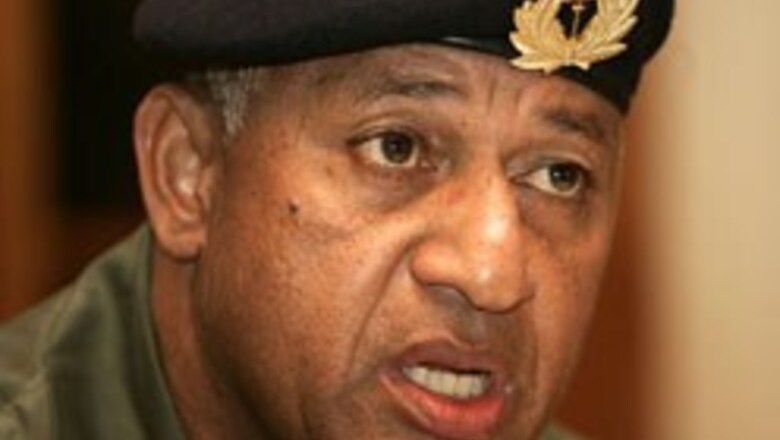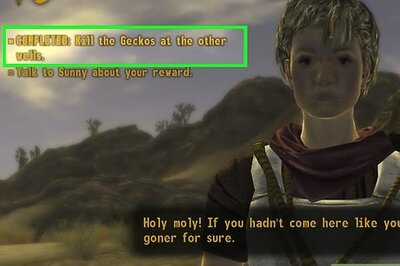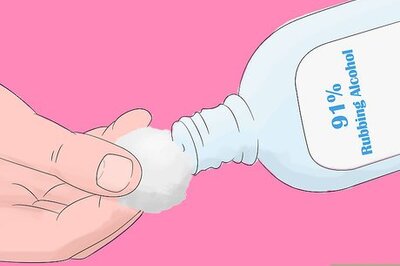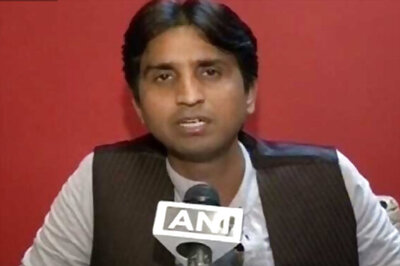
views
Suva: Fiji's military commander announced on Tuesday he had taken control of the country from the elected government, confirming the South Pacific nation's fourth coup in less than two decades.
"The military has taken over the government, has executive authority and the running of this country," Commodore Frank Bainimarama told a news conference broadcast nationally.
Bainimarama said he had invoked special powers under the Constitution to assume some powers of the President, and was using them to dismiss Prime Minister Laisenia Qarase from office and appoint an interim replacement.
He said he would surrender the presidential powers next week, and would ask the country's Great Council of Chiefs to restore them to President Ratu Josefa Iloilo, who he expected would then appoint a full caretaker government.
Elections to restore democracy would follow sometime after that, he said.
Bainimarama said he was compelled to act against Qarase because the government was backing bills that undermined the Constitution, and insisted he was acting within the law.
The takeover was immediately condemned by acting Police Commissioner Moses Driver.
"The military has now indulged in a very serious criminal act, and ... we are not going to support the military in this regard, because it is unlawful," Driver told a radio network.
Fiji's mostly unarmed police force has said previously it can't challenge the military's might, and Driver said police opposition would be limited to refusing to take orders from the military.
Armed trooped locked down the capital, Suva, on Tuesday, setting up checkpoints outside government buildings and at other sites. Troops surrounded Qarase's house, blocking roads with tire-bursting spikes, with the prime minister holed up inside with his family and a handful of ministers.
"My impression is that I am under house arrest," Qarase told reporters hours before Bainimarama's declaration. "What happens next is anybody's guess."
PAGE_BREAK
Bainimarama had been threatening to “clean up” Qarase's government for weeks, bringing to a head a long-running feud between the two men that has at its roots deep-seated ethnic divisions in Fiji and personal grudges linked to a coup in 2000.
The slow-coming takeover has already been condemned internationally.
New Zealand Prime Minister Helen Clark announced in Parliament on Tuesday that defence ties with Fiji were being severed and officers and their families from that country would be banned. Bainimarama is believed to have children studying in New Zealand.
''This is an outrage what is happening in Fiji today,'' she told reporters in Wellington, the capital.
Australian Foreign Minister Alexander Downer said Australia would impose similar conditions, adding that two international groups—the Commonwealth of Britain and its former colonies and the South Pacific Forum—would consider suspending Fiji.
Australian Prime Minister John Howard said that Qarase had asked Canberra to send troops to try to prevent the coup, but that he had rejected the request.
Bainimarama previously warned that any foreign intervention would be fiercely opposed.
Fiji, with about 900,000 people, is among the richest and most developed nations in the South Pacific, attracting up to 400,000 tourists a year to resorts built on idyllic beaches mostly in the country's west, away from Suva.
But it has lurched from one political crisis to the next since the military twice grabbed power in 1987 to ensure political supremacy for the 51 percent of the 900,000 population who are indigenous Fijians. Ethnic Indians are a minority of about 44 percent, with most of the rest ethnic Chinese.
Gunmen, angry those advantages were being eroded, seized Parliament in a 2000 coup that brought Qarase, a moderate nationalist, to power in a deal brokered by Bainimarama. Qarase has since won two elections, based partly on populist policies that appealed to indigenous Fijians.
PAGE_BREAK
Bainimarama sees himself as the guardian of Fiji's constitutional guarantees to all Fijians, and opposed as racist legislation proposed by Qarase that would pardon conspirators in the 2000 coup and secure coastal land rights for indigenous Fijians.
Bainimarama survived a mutiny and assassination attempt linked to his resolution of the 2000 coup and the jailing of its leader, George Speight. The architect of the two 1987 coups, former military chief Sitiveni Rabuka, is currently on trial in connection to the mutiny.



















Comments
0 comment